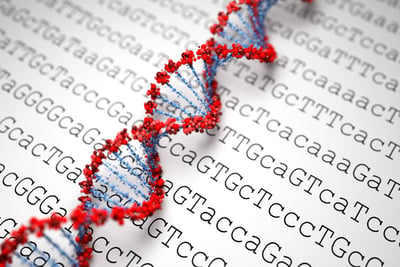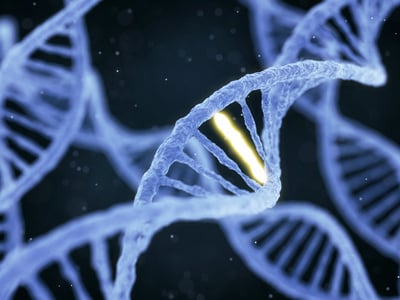FORCE's eXamining the Relevance of Articles for You (XRAY) program looks behind the headlines of cancer news to help you understand what the research means for you.
XRAY is a reliable source of hereditary cancer research-related news and information.
Learn more about the XRAY program
Keyword: PALB2
Relevance: High


Research Timeline: Post Approval


Update : PARP inhibitors, rucaparib (Rubraca) and olaparib (Lynparza) receive FDA approval for metastatic prostate cancer
Most relevant for: Men with metastatic castration-resistant prostate cancer who have certain inherited or tumor mutations in DNA repair genes
The FDA approved two PARP inhibitors, rucaparib (Rubraca) and olaparib (Lynparza) for treatment of metastatic castration-resistant prostate cancer (mCRPC) in men who have certain inherited mutations or tumor mutations. (6/1/20)
Read More
Relevance: High


Strength of Science: Medium-High


Study : Racial and ethnic differences in genetic testing among young breast cancer survivors
Most relevant for: Women diagnosed with breast cancer at age 50 or younger
Genetic testing is recommended for most women who are diagnosed with breast cancer at age 50 or younger. In this study of young women with breast cancer, while the rates of genetic testing did not differ, the rates of women testing positive for an inherited mutation associated with breast cancer did vary between racial and ethnic groups. (2/27/20)
Este artículo está disponible en español.
Read More
Relevance: Medium-High


Strength of Science: Medium


Research Timeline: Post Approval


Study : Inherited mutations in metastatic breast cancer patients
Relevance: Medium-High


Strength of Science: Medium


Research Timeline: Post Approval


Most relevant for: People with metastatic breast cancer
Recent research shows that a significant portion of patients with metastatic breast cancer have harmful mutations in a gene associated with hereditary breast cancer and increased breast cancer risk. (9/26/19)
Read More
Relevance: Medium-High


Research Timeline: Post Approval


Guideline : Breast surgeons recommend genetic testing for all breast cancer patients
Relevance: Medium-High


Research Timeline: Post Approval


Most relevant for: Anyone diagnosed with breast cancer
The American Society of Breast Surgeons published statement on genetic testing for hereditary breast cancer on February 10, 2019. It includes recommendations about who should be tested. Among these is the recommendation that all breast cancer patients get genetic testing, as well as women who do not have breast cancer but fit the National Comprehensive Cancer Network (NCCN) guidelines. (3/25/19)
Read More
Relevance: Medium-High


Strength of Science: Medium-High


Study : Breast cancer risk increases modestly after childbirth
Relevance: Medium-High


Strength of Science: Medium-High


Most relevant for: Women in their childbearing years
Does having children alter the risk of breast cancer? Women who give birth have a lower lifetime risk of breast cancer. However, newer data suggests that breast cancer risk increases immediately after childbirth. A study published in December 2018 examines data from the Premenopausal Breast Cancer Collective Group seeking to clarify this issue. (12/28/18)
Read More
Relevance: Medium-High


Strength of Science: High


Research Timeline: Post Approval


Study : Inherited breast cancer in Nigerian women
Relevance: Medium-High


Strength of Science: High


Research Timeline: Post Approval


Most relevant for: Nigerian women or women of Nigerian descent who have breast cancer
A new study shows that among Nigerian women, one in eight cases of breast cancer is due to an inherited mutation in BRCA1, BRCA2, PALB2 or TP53. (12/5/18)
Read More
Relevance: Medium-High


Strength of Science: Medium-High


Research Timeline: Post Approval


Study : Study identifies genes associated with risk of triple-negative breast cancer
Relevance: Medium-High


Strength of Science: Medium-High


Research Timeline: Post Approval


Most relevant for: People diagnosed with triple-negative breast cancer
Panel testing can identify women who are at increased risk for breast cancer. However, those at risk for triple-negative breast cancer cannot easily be identified because other than BRCA1, genes that increase the risk for triple-negative breast cancer are unknown. A new study uses panel testing to identify which genes increase the risk for triple-negative breast cancer. (8/23/18)
Read More
Relevance: Medium-Low


Strength of Science: Medium-Low


Research Timeline: Human Research


Study : No new high-risk breast cancer genes here
Relevance: Medium-Low


Strength of Science: Medium-Low


Research Timeline: Human Research


Most relevant for: People with a family history of breast cancer but no known inherited mutation
While some of the genes that cause hereditary breast cancer are known (for example, inherited mutations in genes like BRCA, ATM and PALB2), others remain unidentified. Two studies found 72 DNA changes (also known as “variants” or “SNPs”) that affect breast cancer risk. These variants are different from mutations in genes that dramatically increase cancer risk. Most of these new variants are located outside of the portion of DNA that is used to make proteins. Further research is needed on these new variants before they can be used by doctors to help people understand and manage their risk for cancer. (1/12/18)
Read More
Relevance: Medium


Strength of Science: Medium-Low


Study : Angelina Jolie spoke out on BRCA testing: Did genetic testing increase?
Most relevant for: People interested in genetic testing for an inherited mutation
Angelina Jolie published an editorial in the New York Times in 2013 about her choice to have a double mastectomy after finding out she was positive for a BRCA1 mutation. Researchers from a recent study claim that her celebrity endorsement of BRCA testing may have missed its target audience (previvors), due to the increase in BRCA testing following publication of the editorial but a decrease in the number of mastectomies performed. However, the study failed to take into account that many women without breast cancer do not pursue mastectomy in the months following genetic testing. (1/4/17)
Read More
Relevance: Medium-High


Strength of Science: Medium


Research Timeline: Post Approval


Study : Rare mutations in PALB2, CHEK2, and ATM: how much do they increase cancer risk?
Relevance: Medium-High


Strength of Science: Medium


Research Timeline: Post Approval


Most relevant for: People who tested positive for one of the rare variants in CHEK2, ATM or PALB2 that are covered in this study
As multi-gene panel tests become more common, people are discovering they have mutations in genes that are not understood as well as BRCA. This can make it difficult to give patients accurate assessments of their cancer risk. For example, mutations in PALB2, CHEK2, and ATM are rare, but some specific changes in these genes are even less common. The goal of this international collaboration was to better understand the cancer risks of some very rare PALB2, CHEK2, and ATM mutations. The findings are relevant only to the specific mutations covered in this paper and do not apply to all people with mutations in PALB2, CHEK2, or ATM. (9/27/16)
Read More